Does Pay Per Click Help Seo?
Does Pay Per Click Help SEO? If you’ve ever wondered about the relationship between pay-per-click (PPC) advertising and search engine optimization (SEO), you’re not alone! Many people are curious to know if investing in PPC can have a positive impact on their website’s organic search rankings. Well, get ready to uncover the mystery because we’re about to dive into this fascinating topic!
So, what’s the deal with PPC and SEO? In a nutshell, PPC and SEO are two distinct online marketing strategies that can complement each other in different ways. While SEO focuses on optimizing your website to rank higher in organic search results, PPC involves paying for ads that appear at the top of search engine result pages (SERPs). Though they have different approaches, they both aim to increase visibility and attract more visitors to your site.
Now, let’s address the big question: does PPC help SEO? The answer is… it depends! While PPC itself doesn’t directly impact organic search rankings, it can indirectly contribute to SEO success. How? Well, PPC campaigns can provide valuable insights into which keywords drive the most traffic and conversions. Armed with this knowledge, you can optimize your website’s content and meta tags to target those high-performing keywords. This strategic alignment between PPC and SEO can give you a competitive edge in the online landscape.
So, buckle up and get ready to discover the fascinating relationship between PPC and SEO. In this article, we’ll explore how these two strategies can work together to boost your website’s visibility and drive more organic traffic. Whether you’re a curious marketer or a business owner looking to maximize your online presence, we’ve got you covered. Let’s dive in and unravel the mysteries of PPC and SEO synergy!
Many people wonder, “Does pay per click help improve SEO?” While PPC and SEO are distinct strategies, they can complement each other. Pay per click advertising can help drive traffic to your website, increasing visibility and brand awareness. This can indirectly impact your SEO efforts by increasing click-through rates and generating more backlinks. However, PPC alone does not directly improve SEO rankings. To maximize the benefits, it’s best to integrate PPC and SEO strategies for a comprehensive digital marketing approach.
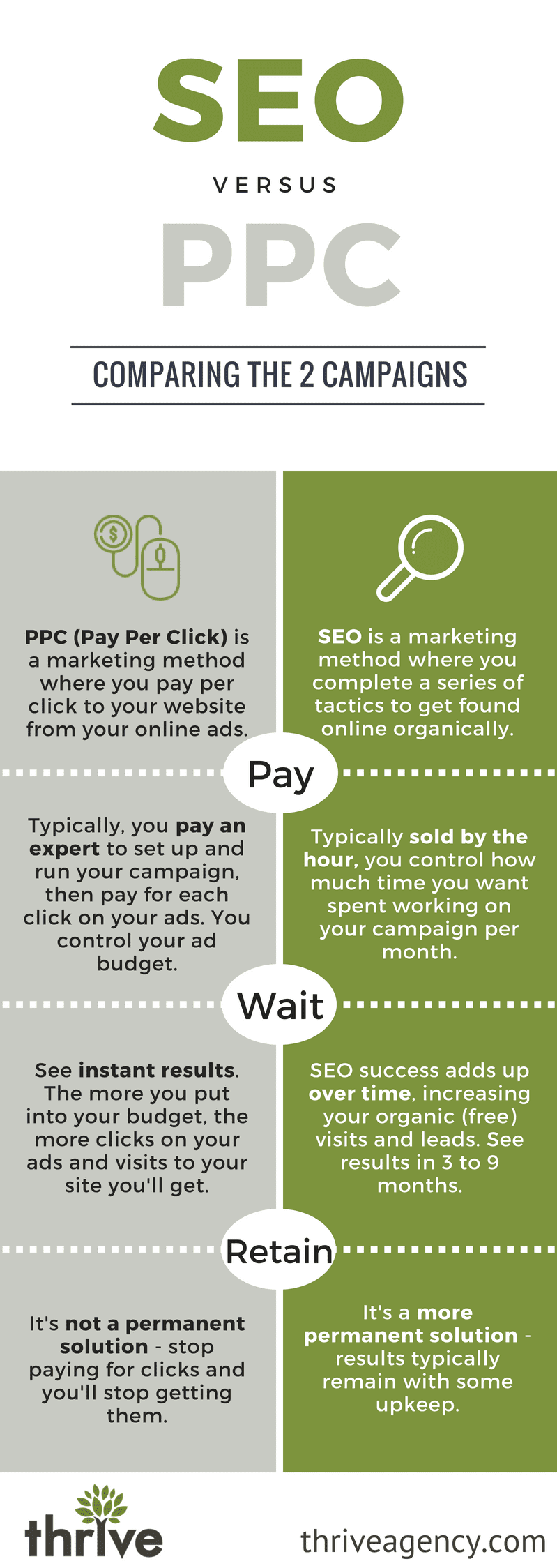
Does Pay Per Click Help SEO?
Pay per click (PPC) advertising and search engine optimization (SEO) are two essential components of any successful digital marketing strategy. While PPC is a paid advertising method that drives immediate traffic to a website, SEO focuses on organic search rankings and long-term traffic growth. This raises the question: does pay per click help SEO? In this article, we will explore the relationship between PPC and SEO, debunking common myths and providing valuable insights to help you make informed decisions for your online marketing efforts.
The Synergy Between PPC and SEO
1. Improving Keyword Research:
When it comes to SEO, keyword research is crucial for optimizing website content and improving organic search rankings. PPC can provide valuable data and insights into customer behavior, helping you identify which keywords drive the most conversions and valuable traffic. By analyzing the performance of PPC campaigns, you can gather invaluable information to refine your SEO strategies and focus on the most effective keywords.
Investing in PPC can also serve as a testing ground for new keyword ideas before committing to a long-term SEO strategy. By identifying high-performing keywords through PPC campaigns, you can then optimize your website content to rank organically for these keywords, ultimately boosting your SEO efforts.
2. Enhancing Click-Through Rates:
PPC ads tend to appear at the top of search engine results pages (SERPs), making them highly visible to users. By running PPC campaigns, you can increase the visibility and click-through rates (CTR) for your website. A higher CTR not only drives immediate traffic to your site but also signals to search engines that your website is relevant and trustworthy. This can positively impact your organic search rankings, as search engines take into account the CTR when determining the quality and relevance of a website.
Therefore, running PPC campaigns alongside your SEO efforts can help enhance your website’s CTR, leading to improved organic search rankings over time.
3. Gaining Insights into Ad Copy and Landing Page Performance:
PPC advertising allows you to test different ad copies and landing pages to gauge their effectiveness. By analyzing the performance of various ad copies and landing pages, you can identify what resonates best with your target audience. These insights can then be applied to your website’s SEO strategy, helping you create compelling meta descriptions, title tags, and on-page content that attract and engage users.
Additionally, by having a well-designed and optimized landing page for your PPC campaigns, you can increase the chances of conversions. This positive user experience can contribute to improved user signals, such as reduced bounce rates and longer dwell times, which are important ranking factors for SEO.
4. Increasing Brand Visibility:
One of the indirect benefits of running PPC campaigns is the increased brand visibility it generates. By appearing at the top of search results, even if users do not click on your ads, they are still exposed to your brand name and message. This increased brand exposure can generate brand recall and organic searches, which in turn can positively impact your SEO efforts. When users are familiar with your brand, they may be more likely to click on your organic search listings and engage with your content, leading to higher organic traffic and improved SEO performance.
In conclusion, while pay per click advertising and SEO are distinct strategies with different objectives, there is a strong synergy between the two. PPC can provide valuable data and insights for keyword research, enhance click-through rates and user engagement, and increase brand visibility, all of which can positively impact your SEO efforts. By strategically integrating PPC and SEO, you can create a comprehensive and effective online marketing strategy that maximizes results and drives long-term success.
Common Misconceptions about PPC and SEO
1. PPC Helps SEO Rank Higher:
Contrary to popular belief, running PPC campaigns does not directly impact your organic search rankings. Search engines, such as Google, have separate algorithms for organic search results and paid advertisements. While PPC can indirectly contribute to improved SEO performance by enhancing click-through rates and user engagement, it does not guarantee higher organic search rankings.
To rank higher organically, you need to focus on implementing effective SEO strategies, such as quality content creation, on-page optimization, backlink building, and user experience improvements.
2. PPC Is a Substitute for SEO:
Some businesses mistakenly believe that investing solely in PPC can replace their need for an SEO strategy. However, this is a misconception as both PPC and SEO play distinctive roles in driving traffic and achieving marketing objectives.
PPC provides immediate visibility and targeted traffic, making it beneficial for short-term goals and specific campaigns. On the other hand, SEO focuses on building long-term organic traffic and establishing a strong online presence. By combining both strategies, businesses can enjoy the benefits of immediate results from PPC while laying the foundation for sustainable organic growth through SEO.
3. SEO Eliminates the Need for PPC:
While SEO is crucial for organic traffic and long-term success, relying solely on SEO can limit your visibility and the immediate results that PPC can provide. PPC offers businesses the ability to reach highly targeted audiences, test ad copies and landing pages, and drive immediate traffic to their websites. It is an effective complement to SEO and can provide valuable insights and data to inform your SEO strategies.
By leveraging both PPC and SEO, businesses can achieve a well-rounded digital marketing strategy that maximizes their online visibility and generates optimal results.
Benefits of Integrating PPC and SEO
Integrating PPC and SEO strategies can yield several benefits for your digital marketing efforts. Here are some key advantages:
1. Expanded Online Visibility:
By combining PPC and SEO, you can increase your online visibility on both paid and organic search results. This expanded presence allows you to capture the attention of a wider audience and maximize your chances of attracting valuable traffic to your website.
2. Increased Traffic and Conversions:
PPC campaigns can drive immediate traffic to your website, resulting in increased exposure and potential conversions. Meanwhile, effective SEO strategies can help improve your organic search rankings, leading to sustained traffic growth and higher conversion rates over time.
3. Improved Keyword Research and Targeting:
PPC campaigns provide invaluable data on keyword performance, which can be leveraged to optimize your SEO strategies. By identifying high-performing keywords through PPC, you can refine your organic optimization efforts and target the most relevant and lucrative keywords for your business.
4. Enhanced User Experience:
Both PPC and SEO prioritize user experience to improve engagement and conversions. By integrating the two, you can optimize your website’s usability, load times, and navigation, resulting in an enhanced user experience and increased chances of conversions.
5. Cost Efficiency:
PPC campaigns can provide quick results, but they come at a cost. By investing in SEO alongside your PPC efforts, you can gradually reduce your reliance on paid advertising while still driving valuable organic traffic to your website. Over time, this can lead to cost savings and increased return on investment (ROI).
Integrating PPC and SEO can create a symbiotic relationship that maximizes your online presence, increases targeted traffic, and drives optimal results for your digital marketing efforts.
PPC vs. SEO: Choosing the Right Strategy
While integrating PPC and SEO is beneficial, there may be instances where focusing on one strategy takes precedence. Here are some factors to consider when deciding between PPC and SEO:
1. Business Goals:
Evaluate your business goals and determine whether immediate results or long-term growth is the priority. If you need quick visibility and conversions for a specific campaign or product launch, PPC may be the better option. On the other hand, if you are focused on building sustainable organic traffic and establishing a strong online presence, SEO should take precedence.
2. Target Audience and User Intent:
Consider the behavior and preferences of your target audience. Are they actively searching for your products or services, or do they need more awareness? If your audience is actively searching, investing in SEO to capture organic search traffic may be the right approach. If your target audience is not actively searching or needs immediate visibility, PPC can generate quick results and increase brand exposure.
3. Budget and Resources:
Assess your budget and resources available for digital marketing. PPC campaigns require a financial investment, while SEO implementation may require more time, effort, and expertise. Consider your budget constraints and available resources to determine which strategy aligns best with your capabilities.
4. Competitive Landscape:
Analyze the competition in your industry. If you are operating in a highly saturated market with strong competition, focusing on SEO may be challenging and time-consuming. In such cases, PPC can provide a competitive edge by immediately placing your brand at the top of search results.
5. Stage of Business:
Consider the stage of your business and its online presence. If you are a new business or have recently established your online presence, PPC can be an effective way to gain immediate visibility and generate traffic. As your website gains traction and starts ranking organically, you can gradually reduce your reliance on PPC and focus more on SEO.
By evaluating these factors, you can determine which strategy aligns best with your business needs and goals.
Maximizing the Benefits of PPC and SEO
While PPC and SEO are distinct strategies, they work best when integrated and strategically aligned. Here are some tips to maximize the benefits of combining PPC and SEO:
1. Share Data and Insights:
Share the data and insights gathered from PPC campaigns with your SEO team, and vice versa. This cross-collaboration can lead to a more comprehensive understanding of your target audience, keyword performance, and overall digital marketing strategies.
2. Optimize Landing Pages:
Ensure that the landing pages used in your PPC campaigns are optimized for conversions, user experience, and SEO. By aligning your landing pages with your SEO efforts, you can maximize the chances of conversions and improve your organic search rankings.
3. Refine Keyword Strategy:
Use the insights gained from PPC campaigns to refine your SEO keyword strategy. Identify high-performing keywords and incorporate them into your organic optimization efforts. Similarly, evaluate the performance of keywords organically and consider using them in your PPC campaigns to drive more targeted traffic.
4. Test and Refine:
PPC campaigns provide an excellent opportunity to test various strategies, such as ad copies, landing pages, and calls-to-action. Use the data and insights gained from these tests to iterate and improve your overall digital marketing strategies, including SEO.
5. Track and Analyze Results:
Regularly track and analyze the performance of both your PPC and SEO campaigns. Monitor key metrics such as click-through rates, conversions, bounce rates, organic traffic, and keyword rankings. By identifying trends and patterns, you can make data-driven decisions to optimize your strategies and drive better results.
By following these tips, you can leverage the complementary nature of PPC and SEO, creating a cohesive and impactful digital marketing strategy.
Conclusion
In conclusion, while PPC and SEO are distinct strategies, they can greatly benefit and complement each other when integrated strategically. PPC provides valuable data and insights for keyword research, enhances click-through rates, and increases brand visibility. On the other hand, SEO focuses on long-term organic rankings, sustained traffic growth, and an enhanced user experience. By combining both strategies, businesses can achieve expanded online visibility, increased traffic and conversions, improved keyword targeting, and enhanced cost efficiency.
To maximize the benefits of integrating PPC and SEO, businesses should share data and insights, optimize landing pages, refine keyword strategies, test and refine their approaches, and continuously track and analyze results. By aligning their digital marketing efforts and leveraging the strengths of both PPC and SEO, businesses can drive optimal results and achieve long-term success in the digital landscape.
Key Takeaways:
- Pay Per Click (PPC) advertising can indirectly help with SEO by driving more traffic to your website.
- PPC can help increase brand awareness and visibility in search engine results pages (SERPs).
- PPC campaigns can provide valuable data and insights for SEO optimization.
- Running PPC ads can help test the effectiveness of keywords before investing in long-term SEO strategies.
- PPC can complement SEO efforts by targeting specific keywords or demographics.
Frequently Asked Questions
Pay per click (PPC) is a common digital advertising model, but does it actually help with SEO? Find out the answers to some common questions related to the impact of PPC on SEO below.
1. Does running a PPC campaign improve my website’s organic search rankings?
While PPC ads do not directly impact your website’s organic search rankings, they can still indirectly benefit your SEO efforts. By running PPC campaigns, you can increase brand exposure, attract more visitors, and generate clicks and engagement. These factors can lead to increased organic traffic and improve your chances of obtaining natural backlinks. Additionally, a well-optimized PPC campaign can help you identify valuable keywords for your SEO strategy, which can drive better organic rankings in the long run.
Therefore, while PPC campaigns themselves don’t directly influence SEO, they can play a complementary role by boosting overall website visibility and providing valuable insights for your organic optimization efforts.
2. Can PPC ads affect my website’s click-through rates (CTR) in organic search results?
Yes, running PPC ads can influence your website’s click-through rates in organic search results. By having a strong presence in both paid and organic listings, you increase your chances of attracting users’ attention and clicks. Research has shown that having a PPC ad in the search results can increase click-through rates for both paid and organic results, resulting in more overall clicks for your website.
This effect is commonly known as the “halo effect,” where the presence of PPC ads positively impacts users’ perception and credibility of your website, leading to higher click-through rates in organic search listings.
3. How does PPC help with keyword research for my SEO strategy?
PPC campaigns can be a valuable source of keyword data that can inform and enhance your SEO strategy. With PPC, you can identify high-performing keywords that generate clicks, conversions, and engagement. These insights can be used to optimize your website’s content, meta tags, and on-page elements for better organic rankings. Additionally, PPC campaigns allow you to test the effectiveness of different keywords, helping you refine your SEO strategy and focus on the most impactful keywords for your target audience.
By leveraging PPC for keyword research, you can gain a competitive advantage in the organic search landscape and better understand user intent, ultimately improving your website’s SEO performance.
4. Do PPC ads influence website credibility and trustworthiness?
PPC ads can positively impact website credibility and trustworthiness. When users see your website listed in both paid and organic search results, it signals to them that your website is reputable and trustworthy. This dual presence can reinforce your brand’s authority and increase user confidence in clicking and engaging with your website.
Furthermore, PPC ads often appear at the top of search results, which can give off the impression that the advertised websites are endorsed or highly recommended. This association with prime ad positioning can enhance your website’s credibility among users and potentially augment your overall SEO efforts.
5. Should I prioritize PPC or SEO for my digital marketing strategy?
The answer depends on your specific goals and resources. Both PPC and SEO have their strengths and can contribute to a robust digital marketing strategy. PPC offers immediate visibility, fast results, and precise targeting, making it ideal for short-term promotions or specific campaigns. On the other hand, SEO focuses on long-term sustainable growth, generating organic traffic and establishing brand authority.
In an ideal scenario, combining PPC and SEO efforts can lead to optimal results, as they complement each other effectively. Investing in both strategies allows you to maximize your online presence and reach a broader audience. However, if you have limited resources, it’s crucial to analyze your goals and prioritize based on your unique circumstances and objectives.
SEO vs PPC – Which One Should You Invest In First?
Summary
So, does pay per click (PPC) help SEO? The answer is yes! PPC advertising can help improve your website’s visibility in search engine results and drive more organic traffic. By using PPC to target specific keywords and create engaging ads, you can increase your website’s click-through rate and ultimately boost its overall SEO performance. However, it’s important to remember that PPC should be used as part of a comprehensive SEO strategy that includes other tactics like keyword research, content optimization, and link building. In conclusion, while PPC can be a valuable tool for improving SEO, it should be used strategically and in conjunction with other SEO techniques for the best results.

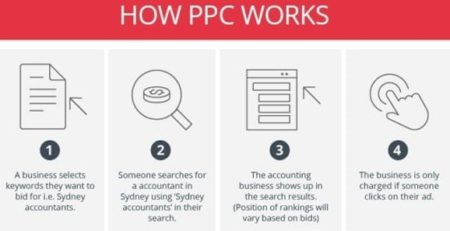

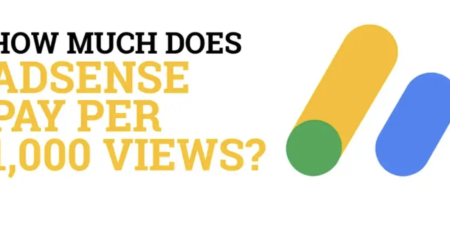
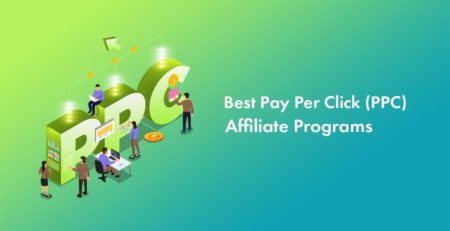
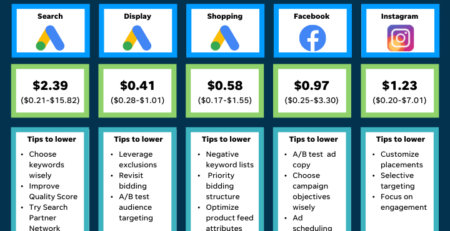
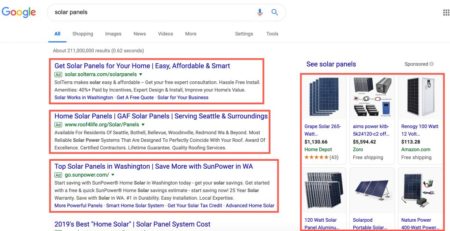
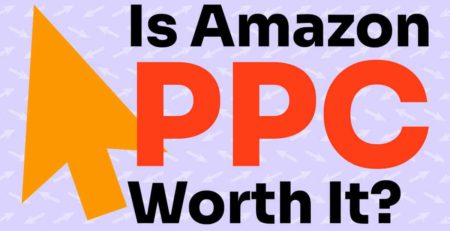
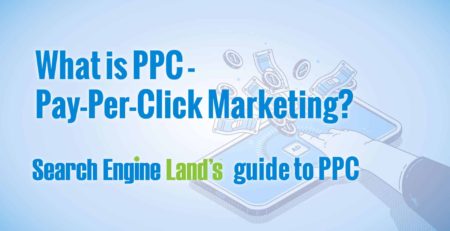

Leave a Reply